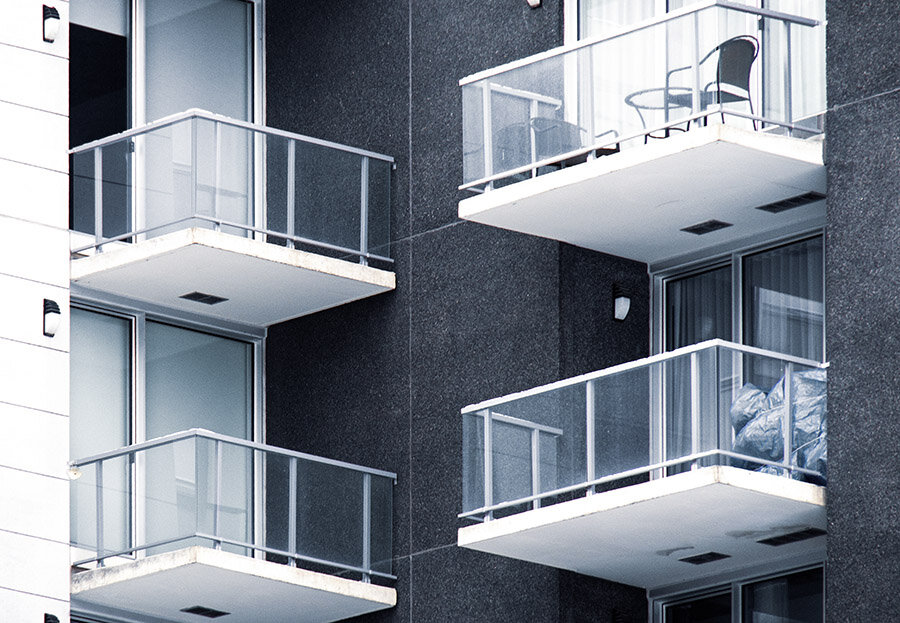Real Estate / Investments / Analytics / Research / Russia / Thailand / United Arab Emirates / Turkey / Georgia 17.03.2025
Thailand, Indonesia, and UAE Real Estate Becomes Less Attractive to Russians

After February 2022, there was a sharp increase in Russian real estate purchases abroad. However, in 2024, this trend has started to shift. According to The Moscow Times, citing Intermark Global, investment transactions fell by 30%, while purchases for relocation declined by 13%. As a result, the share of purchases for relocation increased by 5 percentage points, reaching 45%.
Thailand: A 40% Decline
Thailand has been the most popular destination for Russian real estate buyers, accounting for a quarter of all foreign transactions. Experts attribute its appeal to relatively low prices—starting at $70,000 on average—and good returns on some properties. However, according to Intermark Global, demand for Thai real estate among Russians has dropped by 40% compared to 2023.
Thailand imposes restrictions on foreign buyers:
✔ Land can only be leased, not owned.
✔ Foreign ownership in condominiums is limited to 49% of the total units.
✔ Rental income can be difficult to collect due to regulatory hurdles.
Recently, several landlords were arrested for violating rental laws. Authorities have pledged stricter enforcement and tighter regulation of the sector.
At present, illegal short-term rentals in condominiums can result in:
✔ Up to one year in prison
✔ A fine of up to 20,000 baht ($600)
✔ Additional daily fines of up to 10,000 baht ($300) for continued violations
Thailand’s hotel industry is advocating for stricter control over rental platforms or even a complete ban on short-term rentals.
Indonesia: Arrests, Bans, and New Taxes
Indonesia ranks second among Russian property buyers, with Bali accounting for 17% of all foreign transactions. This marks a rise of two positions in the ranking. Indonesia also has the lowest average property purchase price—around $60,000.
However, these trends may not last. The Indonesian government has intensified its scrutiny of foreign property buyers, many of whom violate local laws by constructing buildings without permits or on prohibited agricultural land.
In 2024, Bali authorities shut down the PARQ Ubud apartment complex, also known as the “Russian Village,” founded by German citizen André Frey. The police detained Frey for illegally converting 1.8 hectares of fertile agricultural land in Ubud into villas, spas, and tourist facilities—without the required permits.
The development was supposed to feature restaurants, shops, a luxury spa, event spaces, a fitness center, and Bali’s largest swimming pool. Investors poured funds into this 65,000 sqm project, as well as seven other ventures. Now, many are struggling to recover their investments.
The government has also imposed:
✔ A ban on new hotel, villa, and nightclub construction
✔ A proposed tourist tax hike from $10 to $100 per day
✔ Increased fraud cases in the Indonesian real estate market, targeting foreign buyers
UAE: Selling Off Properties
The UAE ranks third, with typical transaction values exceeding $250,000. While Russian purchases remained stable in 2023, Tranio reported a 21% decline in interest.
According to Henley & Partners Middle East Director Philipp Amarant, some Russian investors are selling off properties bought in 2022 and relocating to “more affordable and attractive jurisdictions”. Experts note that many Russians are liquidating assets and leaving the UAE.
Investors fear a real estate bubble and price drops in Dubai. Additionally, UAE banks have tightened regulations for Russian clients, increasing transaction delays and, in some cases, outright rejections.
Turkey: Risky Investments
Once a top choice for Russian buyers, Turkey has fallen in popularity, with transactions plummeting by over 50%. It now ranks fourth.
According to Turkey’s Statistical Institute, only 24,000 properties were sold to foreigners in 2024—a 32.1% decline from 2023, making up just 1.6% of all transactions. In December, Russians closed 438 deals, and in January 2025, 248 deals—a 24.9% decrease year-over-year.
Experts cite several reasons for the downturn:
✔ Economic instability and inflation
✔ Depreciation of the Turkish lira
✔ Stricter residency and citizenship policies for foreigners
Due to tightened immigration laws, Russians can no longer obtain long-term residency in many Turkish regions. The minimum property investment required for residency and citizenship has also increased.
Georgia: From Residential to Hotel Investments
Although absent from Intermark Global’s ranking, Georgia appears in nearly all other real estate reports. Tranio places it second in demand, with Russian interest rising by 10%.
Galt & Taggart noted a shift: while Russian purchases declined, Israeli investors increased acquisitions in Batumi by 55%. Nevertheless, Russians remain active in Georgia’s market due to:
✔ Affordable prices
✔ High rental yields
✔ No real estate taxes for buyers
Georgia’s hotel sector is particularly attractive, with over 300 new hotels planned by 2028. Investors prefer branded projects due to their high profitability and stability.
Emotions vs. Investments
Experts are not surprised by the overall decline in Russian demand for overseas property. A Dubai-based realtor notes that the UAE market is overheated, with some buyers already selling at losses. For example, an apartment purchased for $2 million in early 2023 was later sold for $1.6 million.
In Turkey, strict residency and citizenship rules deter Russian buyers. Many of those who intended to relocate after 2022 have already made their purchases.
Additionally, financial transfers from Russia to foreign banks have plummeted. The Russian Central Bank reported:
✔ 2022: 1.5 trillion RUB in transactions
✔ 2023: 832 billion RUB
✔ 2024 (first 11 months): 705 billion RUB
According to Intermark Global Managing Partner Irina Moksheva:
"The 2022 rush was emotional—a reaction to geopolitical events rather than a sound market strategy. Over two years, buyers have become more cautious, making well-calculated investment decisions."
Experts predict that Russian participation in global real estate transactions may decline to 2021 levels.








